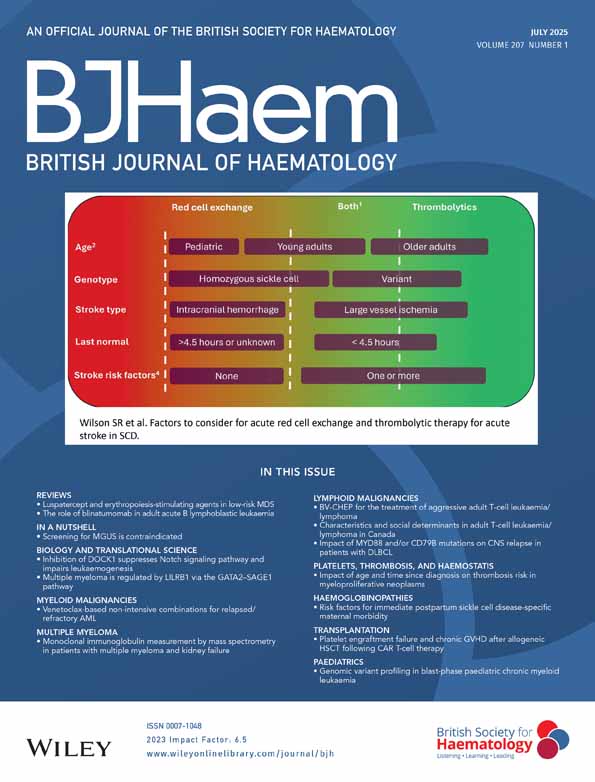Interleukin-10 mRNA expression in B-cell chronic lymphocytic leukaemia inversely correlates with progression of disease
Abstract
Interleukin-10 (IL-10) has been shown in vitro to inhibit survival and spontaneous DNA synthesis in B-cell chronic lymphocytic leukaemia (B-CLL) cells by induction of programmed cell death. We have analysed the presence of mRNA transcripts for IL-10 in purified B-CLL cells from 35 patients by RT-PCR. Transcripts for IL-10 were detected in 11/20 patients with non-progressive disease. In cell preparations from patients with progressive B-CLL IL-10 mRNA were detected in only 2/15 samples (P ≤ 0.01). The Epstein-Barr virus status of the cells did not account for the difference in IL-10 mRNA expression observed between the two groups of patients. Thus, IL-10 mRNA expression in leukaemic cells from patients with B-CLL was strongly associated with non-progressive disease. This finding may support other observations suggesting that IL-10 might be a candidate for immune therapy of progressive B-CLL.




